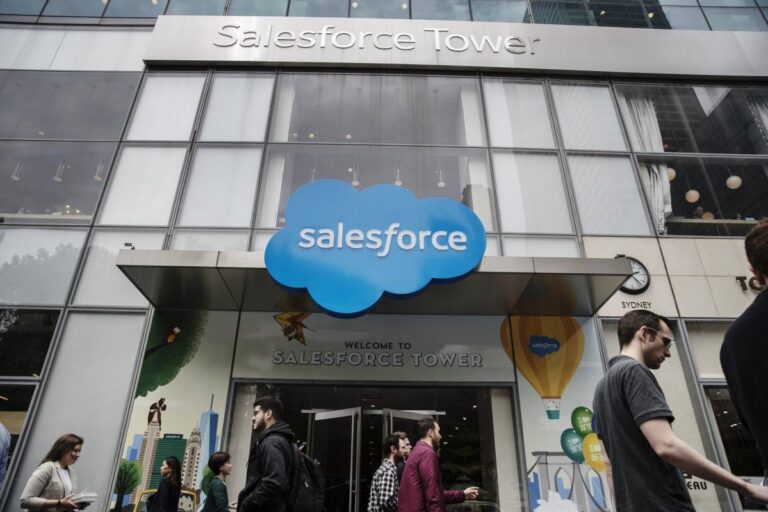(Bloomberg) — Salesforce.com Inc. is announcing a shift in its artificial intelligence strategy at its annual Dreamforce conference this week, saying its AI tools can handle tasks without human oversight and also changing how it charges for its software.
Most read articles on Bloomberg
The company is famous for pioneering the era of software-as-a-service, in which people rent access to computer applications on a subscription basis. But as generative AI shakes up the industry, Salesforce is rethinking its business model for the emerging technology. The software giant will charge $2 for each conversation its new “agents” have. Generative AI is built to handle tasks like customer service and scheduling sales meetings without the need for human oversight.
The new pricing strategy is also aimed at protecting Salesforce.com if AI leads to job losses in the future and enterprise customers end up with fewer workers buying subscriptions to the company’s software.
Salesforce is also eyeing how new technology can replace employees: Its new AI agent can help companies augment their workforce during busy periods without having to hire additional full-time employees or “gig workers,” Chief Executive Marc Benioff said Tuesday in a keynote address at the company’s annual Dreamforce conference.
Despite a breathless focus on AI since the beginning of 2023, application software makers like Salesforce, Workday and ServiceNow have seen little success from their efforts. The revenue and valuation gains from AI have mostly gone to hardware makers like Nvidia and cloud infrastructure makers like Oracle.
Many software vendors have launched AI assistants that can summarize and transcribe text — most notably Microsoft’s Copilot — but customers generally aren’t ready to pay for these extra features yet.
“I think the results that people saw from Copilot didn’t meet their expectations,” Chief Operating Officer Brian Milham said in an interview in late August. “I think the hype got a little bit ahead of the results on the Copilot side.”
The new versions of Salesforce’s AI products are intended to run without supervision, “as opposed to now-outdated co-pilots and chatbots, which rely on human requests and struggle with complex or multi-step tasks,” the company said in a statement. Publisher John Wiley & Sons, for example, said it was able to increase the number of customer service complaints it resolved using Salesforce “agents” without employee intervention.
The story continues
This marks a shift for Salesforce, which until recently has focused on building AI tools to help humans. “We have a principle that says ‘humans are involved.’ We don’t know enough yet to deploy fully autonomous technology,” Salesforce executive Patrick Stokes said in September.
The company plans to highlight its new strategy at Dreamforce this week in San Francisco, where it expects to draw 45,000 attendees, and its venture arm announced a new $500 million fund for AI startups.
Benioff argued on Tuesday that Salesforce already has vast amounts of customer data, which makes its new AI products highly accurate and safe — in contrast to what he called “that pesky copilot.”
Salesforce’s shift addresses another investor concern that job losses from AI could hurt its software-as-a-service business model.
One of AI’s main selling points is labor efficiency: Companies that use AI tools for customer service, for example, need fewer human reps to serve the same customer base. But if a company’s headcount growth slows, software companies’ revenue growth will slow. Software companies charge fees primarily based on the number of employees authorized to use their products. Wall Street analysts have been battling software company executives over this risk on recent earnings calls.
Salesforce is pricing its new AI capabilities based on outcomes rather than the number of employees using them, ensuring it’s not affected by customer layoffs.
COO Milham gave the example of a 5,000-person call center that needed to cut staffing by 30% within five years, and other call centers may choose to reduce employment going forward, he added.
“We tend to think, ‘Let’s retrain people, promote them, and give them more complex work,'” Milham says. “But there are certainly companies that are looking at things from the perspective of, ‘Maybe AI can do a lot of the work that humans do today.'”
(Updates with CEO comments from fourth paragraph onwards)
Most read articles on Bloomberg Businessweek
©2024 Bloomberg LP

